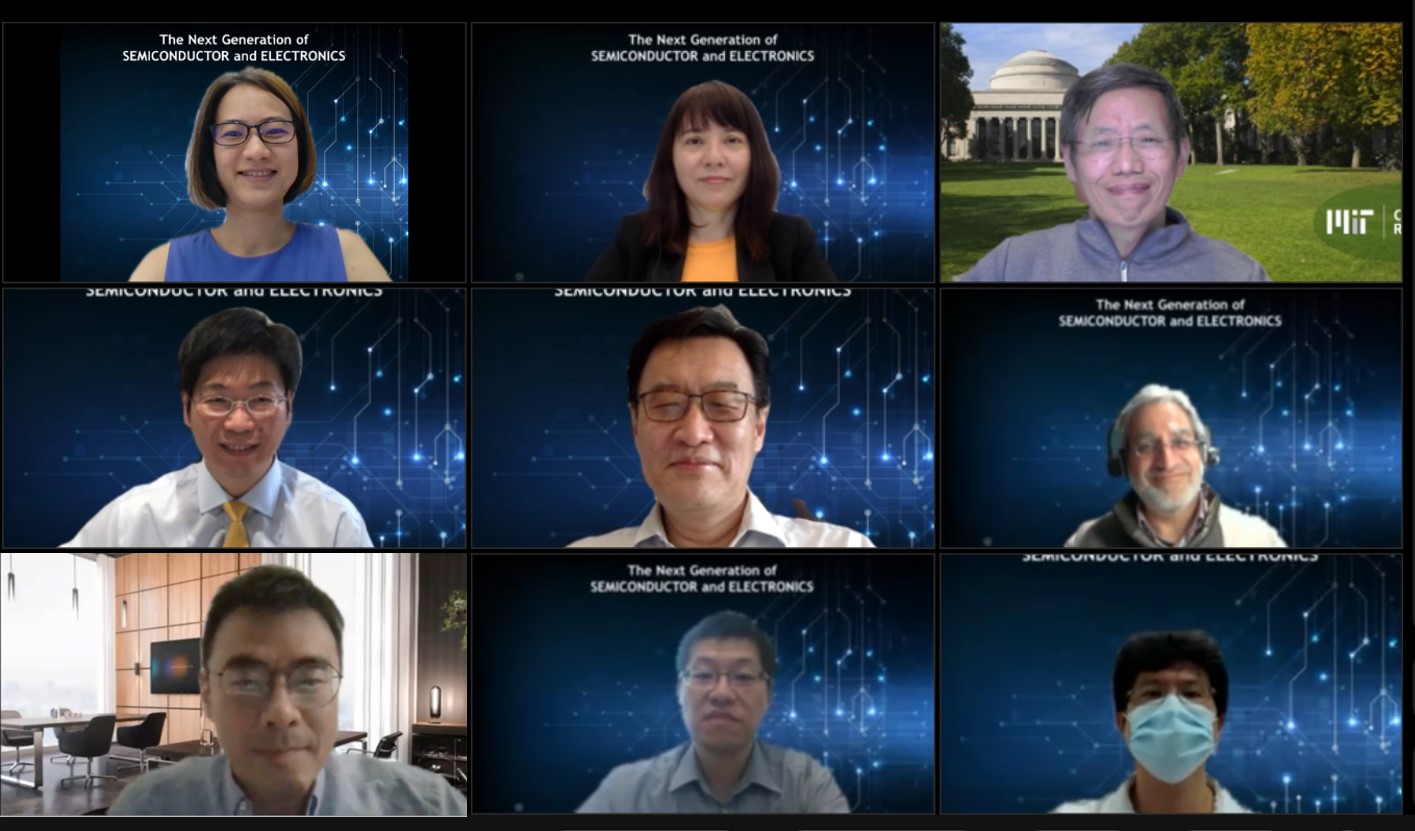The technology industry is inseparable from the development of electronics. The imagination and design of various smart applications promote the development and breakthroughs of the electronics industry. Among them, the semiconductor is the core of industrial evolution. However, in recent years, factors such as political and trade wars, industrial innovation and development, and the COVID-19 pandemic have greatly changed the global supply chain, prompting countries to invest a huge amount of talent, material, and financial resources to actively develop electronic technology and build a local semiconductor industry chain. National Taiwan University and the Massachusetts Institute of Technology organized an online workshop on May 12th and invited experts and scholars in this field from both universities to discuss their research results in electronics and semiconductor technologies. The workshop began with opening remarks from Professor Pai-Chi Li, VP of the Office of Research and Development, and Director of Industry Liaison Office, National Taiwan University: "In the rapid development and transformation of technology, the electronics industry plays a key role. From artificial intelligence, Internet of Things, robotics technology to quantum computing, the success of emerging technologies depends on innovative research and design, which relies on research professionals continuing to overcome existing barriers.”

Group photo of NTU and MIT speakers and guests
In the workshop Dr. Rajeev Ram, Professor of Electrical Engineering, MIT, first talked about the computing with reduced power and increased speed required for the data era. While such advancements are increasingly hard to achieve with conventional CMOS logic, the CMOS ecosystem enables a host of devices beyond electronics, including native photonic components and systems. Dr. Ram presented universal photonic interfaces from data processing and sensing at the edge to high-performance classical and quantum computing at the core in his talk. Next, Dr. Kung-Yen Lee, Professor of the Department of Engineering Science and Ocean Engineering, NTU, discussed the structural characteristics of Sic semiconductor, and the current challenges of the technology development of SiC semiconductor devices. Jeehwan Kim, Associate Professor of Mechanical Engineering and Materials Science, MIT, introduced his research in developing methods to obtain cheap, flexible, stackable, single-crystalline inorganic systems. He discussed his strategies to realize such electronic system and how these strategies unlock new ways of manufacturing advanced electronic systems. Finally, Chia-Hsiang Yang, Professor, Department of Electrical Engineering, NTU, presented his research on data analysis chips for next-generation sequencing. Dr. Yang showed how to use lower power consumption and less time to accelerate DNA data analysis. He also presented a promising solution of a portable sequencing device.
The moderator, Jiun-Haw Lee, Professor, Department of Electrical Engineering, NTU concluded the workshop with the remarks: “Academic organizations are full of talents, like a treasure hub of knowledge. Today's workshop not only shares new knowledge but also promotes the development of research and development." Electronics-related and Semiconductor industries have always been the focus of economic development in Taiwan. The industry, government, and academia have invested a lot of resources to promote forward-looking technologies. Today’s workshop is organized with hopes to promote more exchanges between the industry and academia and create a win-win situation for the cooperation of the two parties.